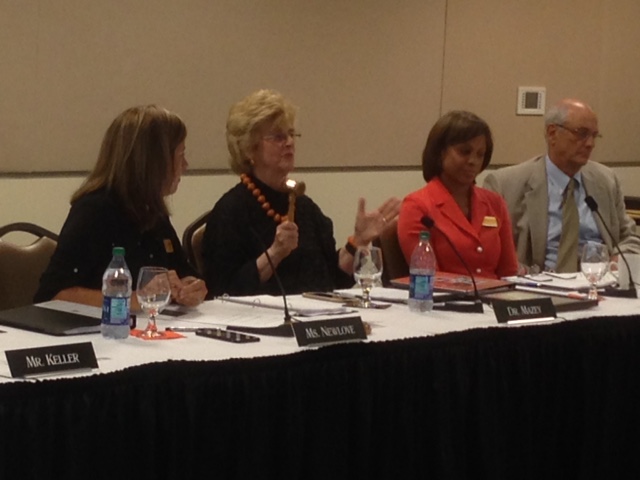By DAVID DUPONT
BG Independent News
Faced with uncertainty over the final state budget, the Bowling Green State University Board of Trustees approved a $416.2 million budget Thursday morning
That includes a 2-percent increase for in-state undergraduate tuition and general fees and 2.5-percent increase for in-state graduate tuition and general fees. The out-of-state surcharge for both graduate and undergraduate students will remain the same.
This is the first time since 2013 that the university has raised tuition.
The increase represents a hike of $105 per semester starting this fall. That brings tuition and general fees to $5,400, up from $5,295.
The tuition increase is expected to bring in an additional $2,433,414 and the graduate tuition increase is $430,135.
The trustees acted while budget negotiations continue in Columbus. Legislators are trying to reconcile spending plans passed by the House and Senate. The legislation must be signed by Gov. John Kasich by June 30.
“The number of unknowns in this budget cycle exceeded the knowns,” Sheri Stoll, vice president for finance and administration, said.
Based on the current proposals, BGSU officials are planning on no increase in state support for two years. But the budget would allow colleges and universities to raise tuition by $10 per credit hour.
On the spending side, the budget includes a 4.1-percent increase in the amount allocated for salaries for faculty. That money is placed in a pool and allotted based on a number of factors. The pool for administrators and staff not in the bargaining unit will be 2 percent.
The BGSU increase will amount to $8.75 per credit hours.
The state proposal also allows colleges and universities to raise certain fees. However, some fee increases approved earlier this year may have to be rolled back.
A fee for career services and advising, however, can be raised. The new budget doubles that fee from $1.50 per student credit hour to $3 for freshmen and sophomores and $2.50 per credit hour to $5 for juniors and seniors, and adds a new $3 per credit hour fee for graduates
Those fees will generate $941,000, Stoll said. That money will be used to increase funding for those services, she said, not be used to replace funds already being spent from other sources.
The money is part of the push to get students thinking about life after graduation as early as possible, she said.
That was the reasoning, President Mary Ellen Mazey said, behind moving the career center into the student union, which gets 8,000 visitors a day.
“We want to them to be brought into that space from day one,” Stoll said.
The university has instituted a guarantee that every student will be able to have an internship or similar experience before they graduate.
The increased fee will help fund those efforts.
In explaining the budget, Stoll said, she relies on conservative figures.
Though the university increasing enrollment and then make sure those students graduate, she said she always assumes that enrollment will stay “flat into perpetuity.”
She has to, she said, because so many of the university’s costs are set a year in advance. The university cannot turn around at the beginning of the semester and start making cuts to course offerings.
The tuition increases keep BGSU in the same position, about fourth, relative to other state universities in terms of tuition. When room and board is calculated, BGSU is the ninth most expensive state university, according to the numbers presented by Stoll. BGSU’s total cost would be $19,718.
Vice Chair Daniel Keller asked if families make decisions on whether to attend BGSU based on the tuition rate or on how much financial aid they receive.
Cecilia Castellano, vice provost for strategic enrollment planning, said they make their determination based on the financial aid package they receive. About 85 percent of students receive some form of financial aid.
According to Stoll presentation, the budget does include a “modest increase” in undergraduate merit scholarships.





